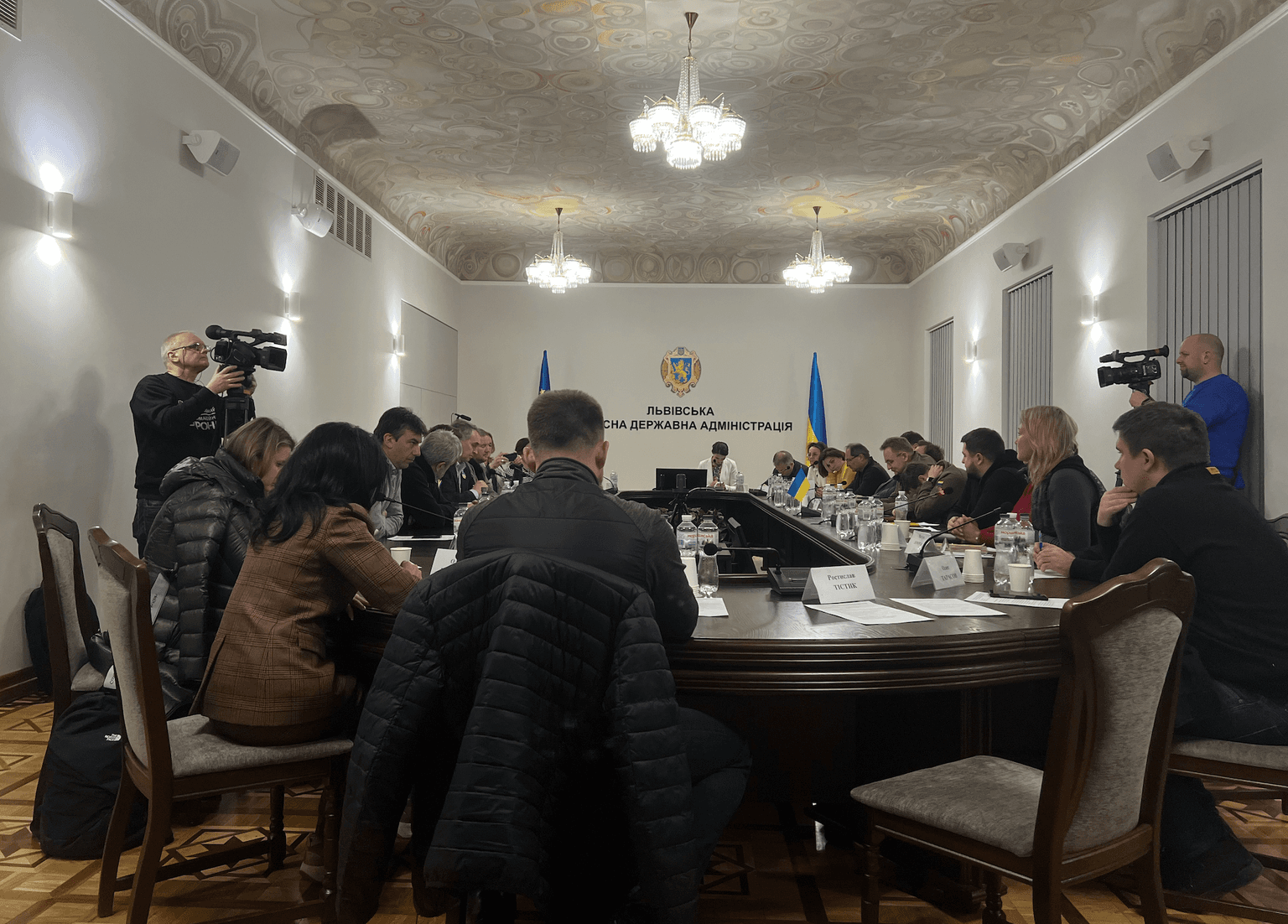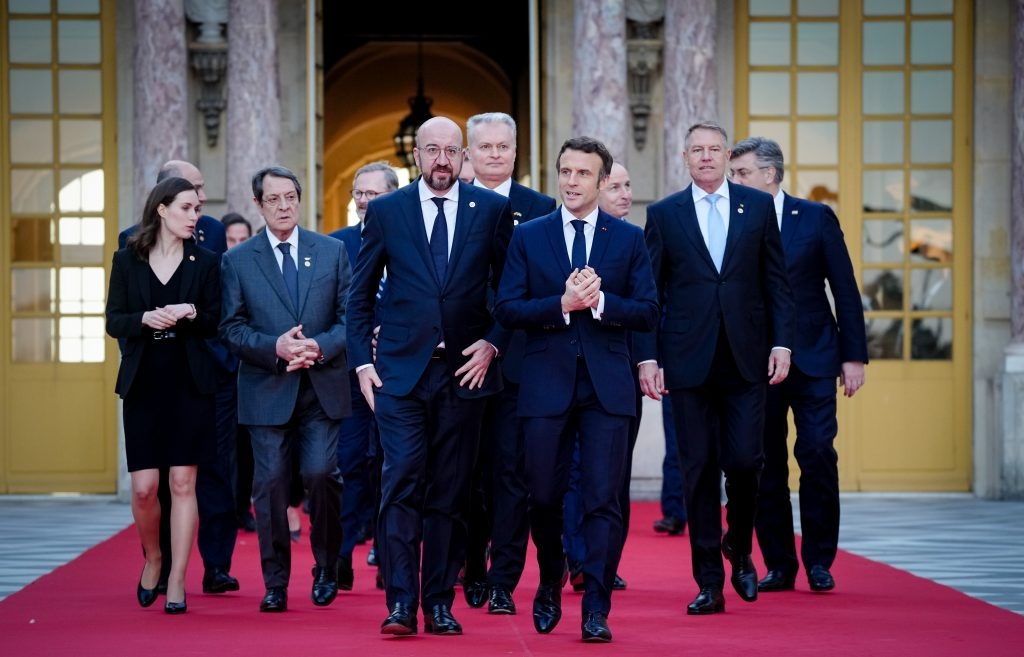EU diplomats visit Lviv in show of support for Ukraine’s quest for candidate status

While European leaders have poured cold water on Ukraine’s ambitious hope of a quick ascension to the EU, efforts continue to bring the eastern nation closer to achieving its long-awaited goal.
Ever since Russia unleashed its full-scale invasion of Ukraine, President Volodymyr Zelensky and his top officials have repeatedly called for an accelerated entry into the 27-nation bloc – an unheard-of option that disregards the traditionally complex and lengthy negotiations.
A day after the top EU leaders met in Versailles and doused Kyiv’s bid for a fast-track membership, Slovak diplomat Michal Šimečka along with other delegation members representing the bloc came to the western city of Lviv to show their support for Ukraine.
The Ukrainian delegation thanked the EU diplomats for the visit despite the ongoing war in the country while emphasizing the need for increased humanitarian assistance and weapons to counter Russian occupying forces.
“Ukraine should receive the status of candidacy as soon as possible,” Šimečka, one of the 14 Vice Presidents of the European Parliament, said.
Speaking on March 11 at an unofficial visit organized by an EU-created informal group called “Friends of European Ukraine,” Šimečka praised the resilience that Ukraine has shown in recent weeks to fend off Russian aggression.
“I cannot think of any other European nation that has so bravely fought for European values (and) a European future,” the Slovak official said.
Šimečka later told the Kyiv Independent that he wasn’t satisfied with the Versailles meeting, saying that the leaders should have been “more ambitious.” Though the diplomat admitted that he sees some progress, he pointed out that skepticism towards EU enlargement has been a long-standing concern.
During Thursday’s talks in Paris, French President Emmanuel Macron led western European leaders in rebuffing Kyiv’s appeals for a speedy path to bloc membership despite the backing of eastern member states.
Macron said that he would like to “send a strong signal in this period to Ukraine and to the Ukrainians” of solidarity but “at the same time, we must be vigilant” and said he didn’t believe it possible to “open an accession procedure with a country at war.”
Other factors such as widespread corruption in Ukraine, the lack of stability in its institutions, and its parlous economic situation are also among the concerns of western European governments who are opposed to rushing to Ukraine's EU candidacy status.
The member states have asked the European Commission to assess Ukraine’s membership application, which Zekensky signed on Feb. 28. This process could take up to 18 months to complete.

Divided leaders
The main argument of those against Ukraine’s bid for candidacy status is that the EU should not make a promise it cannot keep, according to Šimečka. While admitting that there is some truth in the claim, he said that the world has changed since the start of Russia’s war and the European order has dramatically shifted, prompting calls for supporting Ukraine.
Another common argument among the opposing leaders is that the EU should focus on practical help such as through providing more humanitarian assistance or helping Ukrainian refugees.
Šimečka argues that the EU nations can do both simultaneously, supporting Ukraine to pursue the European path while also providing something tangible, whether that be weapons or economic aid.
Though it’s unlikely that Ukraine will gain access to the EU in the nearest years, granting a candidate status would be “a good political signal that Ukraine belongs to the EU,” Šimečka explained.
People in Ukraine are fighting for European values every day at the cost of their lives, he conveyed. Šimečka is optimistic that Ukraine will gain EU candidate status sooner or later now that more nations are seeing the eastern European country battle for its future as part of Europe.
While the EU member states have been fully united in backing Ukraine’s resistance, leaders are also divided on how swiftly the EU could cut energy ties with Russia.
The EU has already announced a plan to reduce its purchase of Russian gas by two-thirds before the end of the year – a significant step considering that 45% of its total gas imports came from Russia in 2021.
The debate over Europe’s energy dependence on Russian gas and oil has made the divide among the member states glaringly clear, with countries like Germany, Austria and Hungary that cover most of their energy needs with Russian fuel being reluctant to make a big move.
Other nations including Latvia and Poland have called for an immediate halt to Russian imports.
Though the transition is going to be tougher on some countries than others, the EU needs to “stop financing (Russian President Vladimir) Putin’s war machine by being so dependent on Russian gas and oil,” Šimečka said.
“We should be prepared for a long struggle with Russia, and an essential part of winning that struggle is helping Ukraine succeed.”










